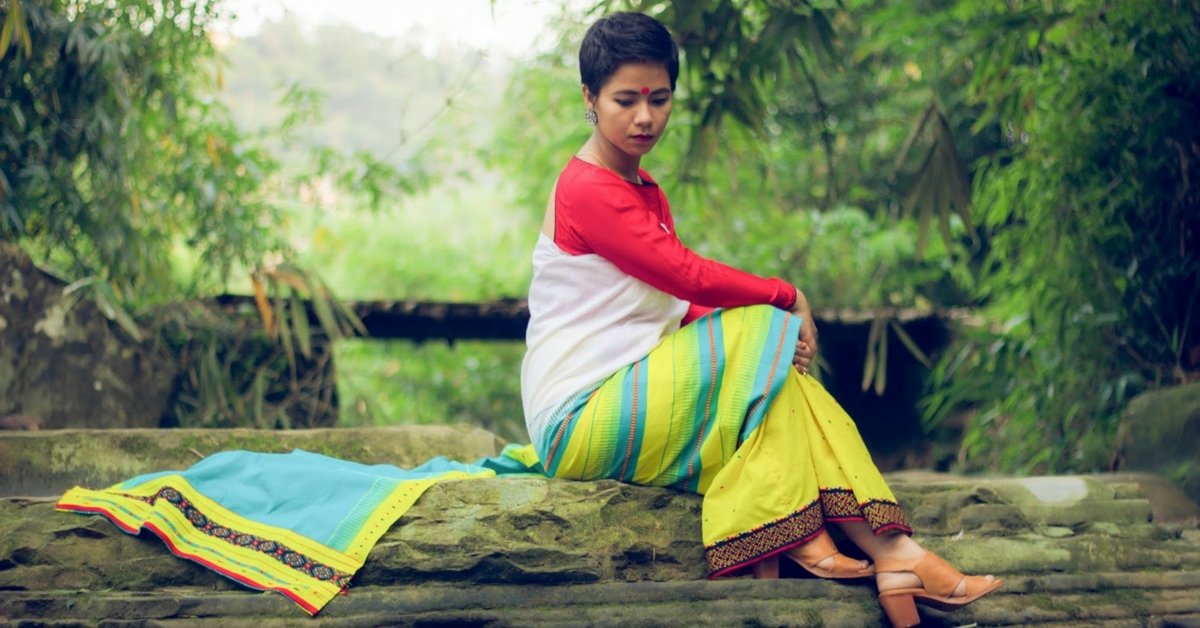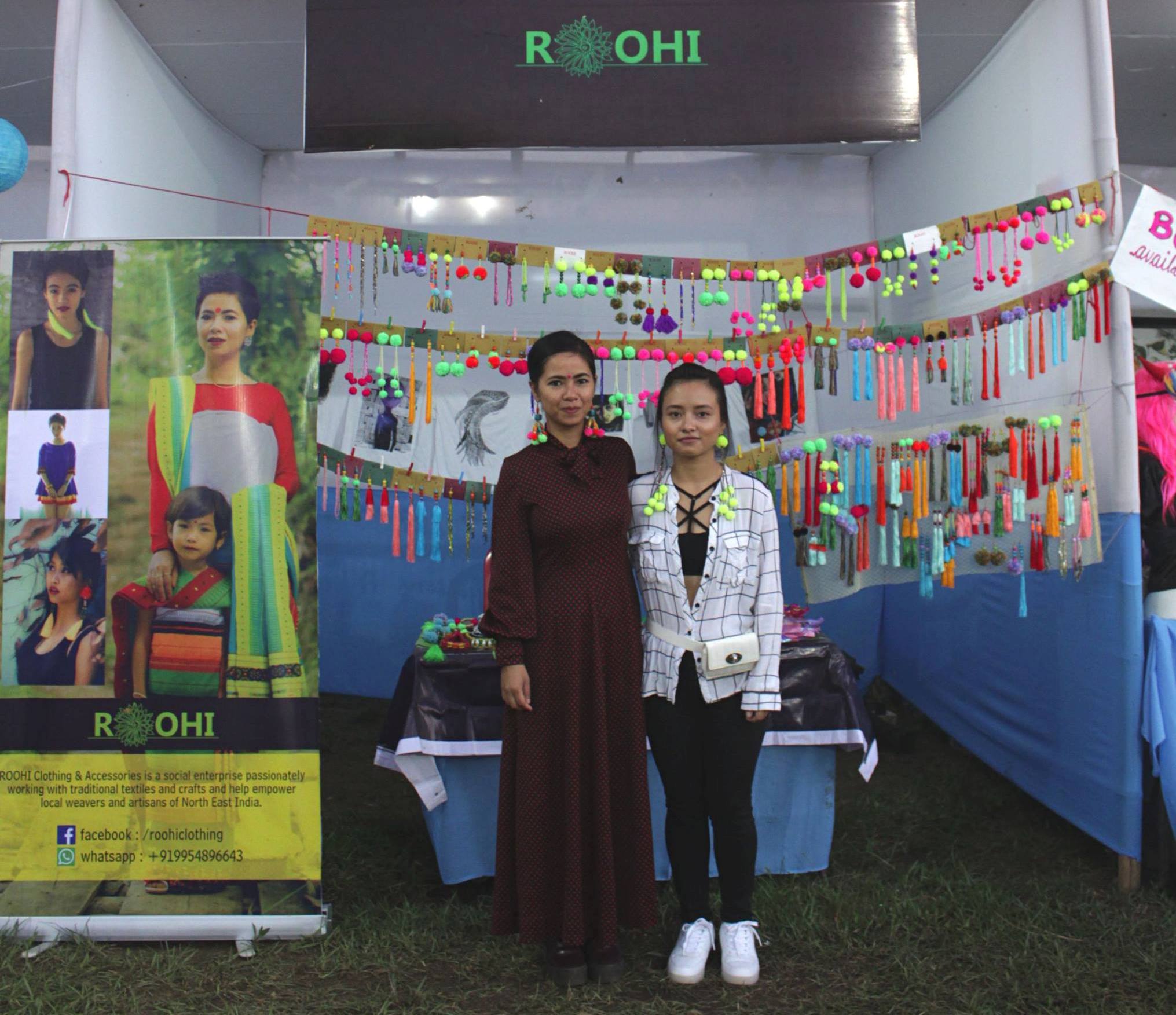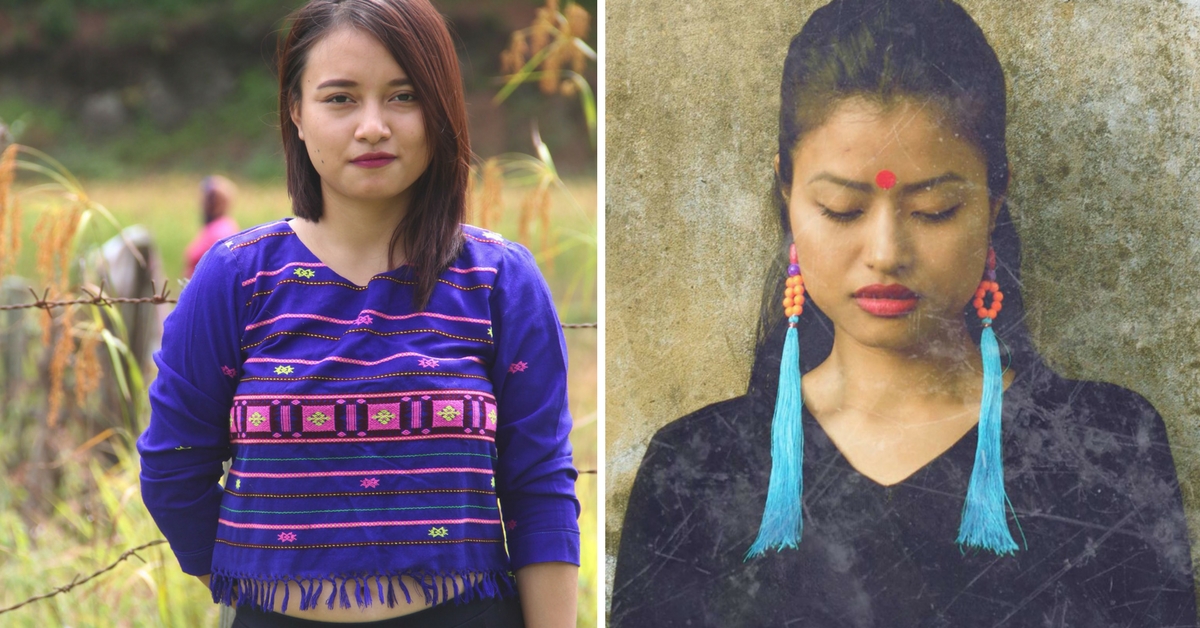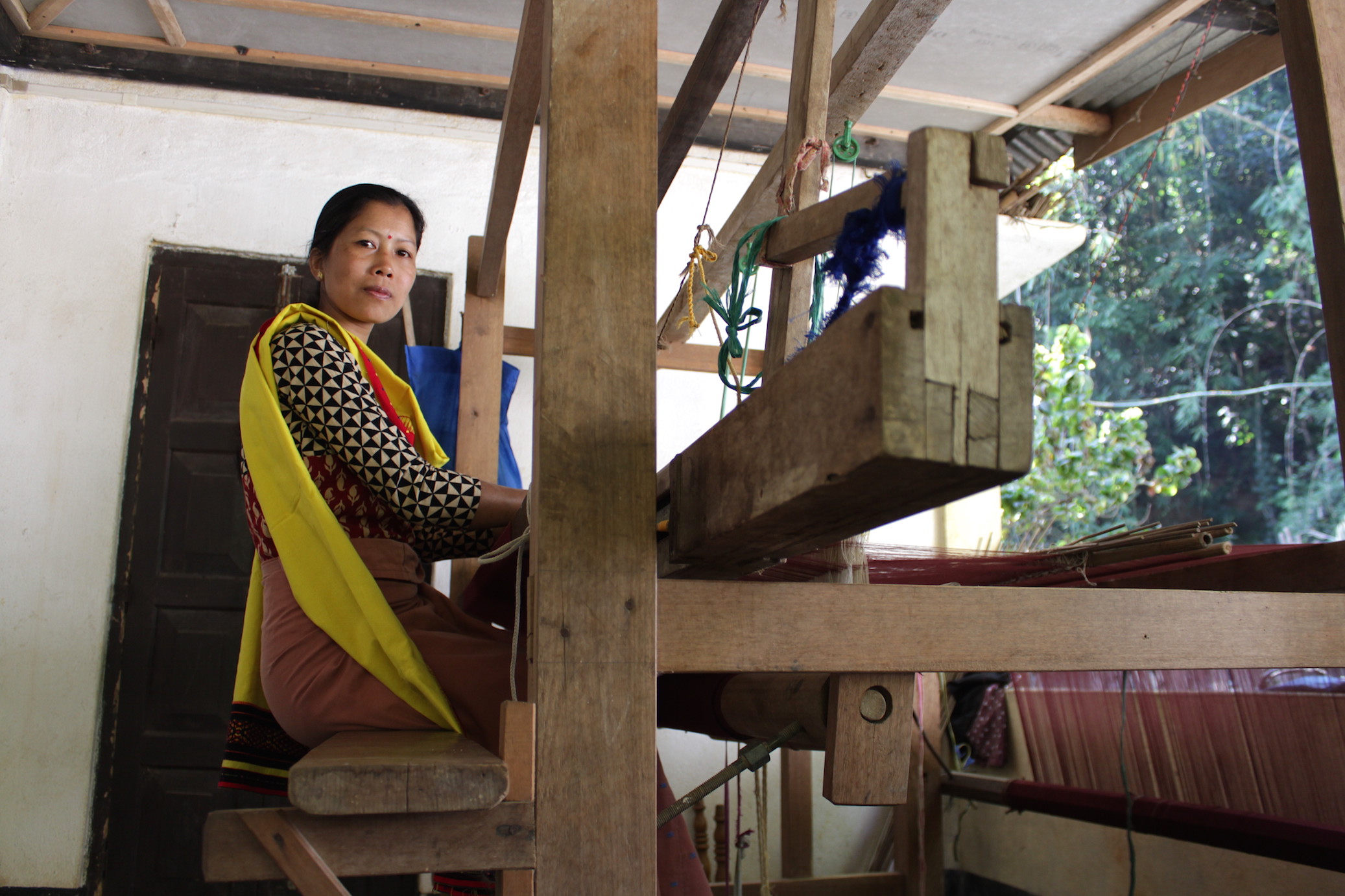Meet the Entrepreneur Who Is Empowering Assam’s Lesser Known Dimasa Cachari Women Weavers
Vivid colours and intricate patterns define the textiles of NC Hills' Dimasa Cachari tribe. ROOHI, a new label based in Haflong, showcases these traditional weaves in a contemporary avatar.

Vivid colours and intricate patterns define the textiles of NC Hills’ Dimasa Cachari tribe. ROOHI, a new label based in Haflong, showcases these traditional weaves in a contemporary avatar.
Among the oldest tribes of the Northeast region, the Dimasa Cachari community remains hidden from the public eye. A large number of Dimasas live in Assam’s North Cachar (NC) Hills, whose headquarter is a hill station named Haflong. While the Dimasa traditional beverage Judima was recently in the news, having qualified for GI certification, a social enterprise based in Haflong wants to showcase the tribe’s textile heritage.
Spearheaded by Avantika Haflongbar, ROOHI is a unique project emerging from NC Hills that hopes to bring Dimasa textiles and craftsmanship to the forefront.

Avantika, a Jamia Milia Islamia graduate, worked in the social service sector and lived in Delhi for 12 years before returning to Haflong, where she grew up. In this quiet and beautiful town, she collaborated with her husband Daniel Langthasa to start an NGO called TRYST Network. Her love for traditional textiles led Avantika to starting ROOHI, a label that works with local craftswomen to reinvent traditional textiles and motifs.
The traditional textiles of the Dimasas have remained unnoticed through the decades. And it’s a pity, considering the vibrant colours and intricate weaves that characterise the local fabrics. The lack of a commercial model or infrastructure has only served to keep the fabrics under wraps.
Avantika says, “Our weavers still use the very old loom, a wooden vertical shaft loom, which has not been upgraded like the looms of the other tribes in the Northeastern region. Hence, the incubation period in weaving one set of garment takes more than two weeks and we cannot partake in massive production because of this setback.”
There are other challenges. Dimasa women were mandatorily meant to learn the art of weaving, but the number has steadily fallen over the years. “Our generation only has a handful of weavers in the making as this art is generally passed down from mother to daughter at a very young age,’ Avantika says. “But in recent times these scenarios are ceasing in the villages too. Children are being sent away to cities for higher and better education and the interest or desire to work on a loom is sadly dwindling.”
Dimasa textiles are known for their bright colours, and at ROOHI these textiles are reinvented in contemporary ways.

“We have hand woven the traditional Dimasa rigu rikhaosa, which is similar to the mekhla chador worn widely in Assam.” Experimenting with colours and techniques, ROOHI also offers colourful handmade earrings and necklaces and contemporary garments using Dimasa textiles.
“I use the same Dimasa textiles but by breaking the age-old colour pattern employed by our predecessors. They were very rigid in their designs—men had a designated design and it could not be worn by women. I take the opportunity to use both male and female handloom designs, and marvel at the beauty of it despite a little opposition from our elderly,” she says with a laugh.
You may also like: Why a Popular French Blogger Is Quitting Her Job to Promote the Cause of Conscious Travel in India
ROOHI aims to be a platform for local craftswomen to earn a livelihood through their craft. Avantika says, “Most of our weavers and craftswomen are homemakers. Some of the women are their families’ sole bread earners. We pay them half in advance, which helps them look after their households, while ensuring participation.”
There are currently 10 craftswomen engaged with the brand, and Avantika plans to include more artisans into their projects.

“ROOHI was purposely born out my earnest desire to help these women in our Dimasa Hasao region who are so talented in their ways of weaving or making handcrafted jewellery,” says Avantika. I only wanted to help by being the connection between consumers and our local artisans, and create this umbrella for sustainable livelihood. ROOHI is nothing without our craftswomen!
Besides selling via the label’s social media pages, Avantika has set up a ROOHI store in Haflong. “With a physical store in the vicinity of our own home, a lot of young people come in with intrigued appreciation for handmade products. They look ready to experiment with ethnic wear, otherwise regarded as passé.”
The label will soon be available at Guwahati in collaboration with The Maati Centre and there are also plans for an ecommerce website.
With the long, painstaking process of crafting the garments, delivering each product to customers is a notable feat. ROOHI’s products are also exhibited at music festivals to promote awareness, and one of their designs was presented to the chief minister of Assam during his visit to Haflong’s Judima Festival in December 2016.
You may also like: Assam Diaries: How a Brother-Sister Duo is Running a 600-Hectare Organic Tea Estate
Avantika sheepishly admits that while her grandmother was a master weaver, her mother did not pursue the craft though she had learnt it. Avantika herself has no knowledge of weaving but makes up for it with a keen aesthetic sense.
Her lack of experience also makes it more important for her to keep these crafts alive. “We need to garner interest among our community itself, to help us encourage more weavers to continue telling stories in their weaves,”
Know more about ROOHI here. To sponsor a weaver or her children’s education, buy ROOHI products or collaborate with the label, contact Avantika here.
Like this story? Or have something to share? Write to us: [email protected], or connect with us on Facebook and Twitter.
NEW: Click here to get positive news on WhatsApp!
If you found our stories insightful, informative, or even just enjoyable, we invite you to consider making a voluntary payment to support the work we do at The Better India. Your contribution helps us continue producing quality content that educates, inspires, and drives positive change.
Choose one of the payment options below for your contribution-
By paying for the stories you value, you directly contribute to sustaining our efforts focused on making a difference in the world. Together, let’s ensure that impactful stories continue to be told and shared, enriching lives and communities alike.
Thank you for your support. Here are some frequently asked questions you might find helpful to know why you are contributing?


This story made me
-
97
-
121
-
89
-
167











